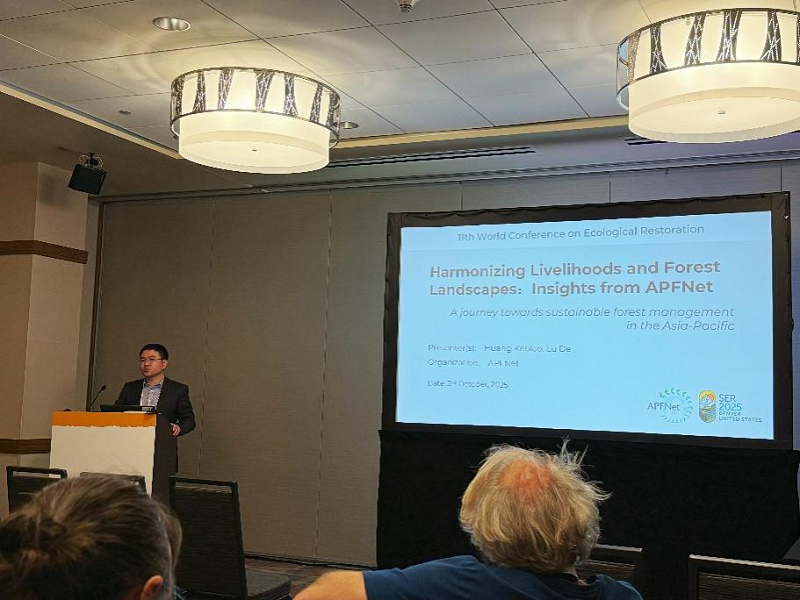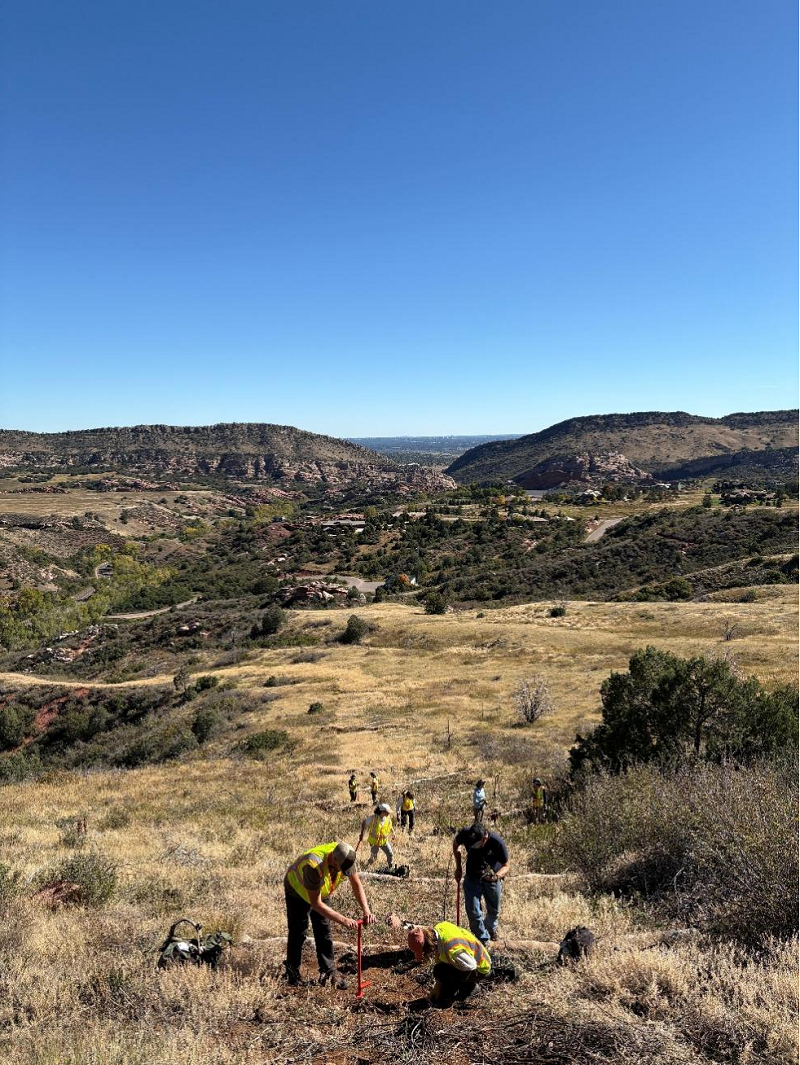From 30 September to 4 October, the 11th World Conference on Ecological Restoration (SER2025) brought together over 1,300 restoration practitioners, scholars, policymakers, and community stakeholders in Denver, the United States. As a leading global forum that translates restoration commitments into practice, it featured a mix of plenaries, symposia, field visits, training sessions, and exchange sessions.
At the conference, in collaboration with its regional partners, APFNet organized a symposium on “Coordination, Cooperation and Collaboration: Innovative Restoration Approaches in Asia and the Pacific.” In its symposium contribution, APFNet presented its ongoing role under the RESULT Asia-Pacific framework and shared field-based examples that link ecological restoration with community livelihoods. Its cases included the long-term work at Wangyedian Forest Farm, Inner Mongolia, where restoration interventions are designed to recover ecosystem function while offering economic opportunities for local communities, and the practices in the Solo River watershed, Indonesia, where watershed resilience enhancement and agroforestry interventions are implemented alongside supporting livelihood diversification for local communities. These examples drew strong interest and stimulated discussion among participants about how such integrated approaches might be adapted and scaled across varying ecological and social settings.

Mr Huang Kebiao shared APFNet’s forest restoration practices /photo by Anna Finke
The collaborating institutions also shared their experiences. FAO outlined its strategic pathway toward RESULT Asia, emphasizing alignment across governance scales and policy coherence. IUCN shared approaches for scaling restoration across Asia via collaborative partnerships and institutional modalities. WWF presented forest and landscape restoration initiatives across ASEAN through partnerships involving governments, financial institutions, and land managers. The Chinese Academy of Forestry discussed an innovative monitoring and evaluation framework on forest landscape restoration in China.
Supplementing the plenaries and symposiums, SER2025 also incorporated field programs, offering delegates a chance to visit restoration sites around Denver and surrounding ecosystems. Participants observed post-fire forest regeneration, wetland rehabilitation, prairie restoration, and urban green space interventions—experiences intended to bridge theoretical discussion with hands-on understanding of restoration challenges on the ground.

Field practice on post-fire restoration in Deer Creek Canyon Park at the foothills of the Rockies/photo by Huang Kebiao
SER (Society for Ecological Restoration) organizes the world conference series to advance the science, practice, and policy of ecological restoration, fostering cross-disciplinary exchange across biomes and regions. The SER2025 underscored restoration’s role in the UN Decade on Ecosystem Restoration and the Global Biodiversity Framework, with the theme of Moving from commitment to action in ecological restoration.